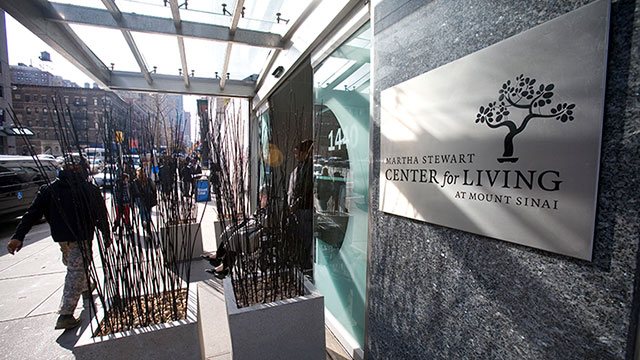
Geriatric Services
Ranked 3rd in the nation for Geriatrics by U.S. News & World Report, Mount Sinai Hospital is helping to change the way we look at, think about, and experience aging – on a global scale. Our expert geriatrics staff provide clinical services and programs that encourage healthy aging, treat patients with chronic illnesses, and provide support and education for family members and caregivers.
We offer holistic or integrative health therapies as an adjunct to traditional medical interventions to help strengthen patients' minds and bodies, and we're building sustainable models for practice, business, education and research that can be used around the world to change the face of aging. Learn more
About Mount Sinai Geriatric Services
As people age, they often need different kinds of care. A geriatric patient may require more referrals with increased interdisciplinary coordination. Navigating this maze can be frustrating and exhausting, not only for the patient, but also for family members and caregivers. At Mount Sinai Hospital in New York City, we have pioneered a new model for geriatric medicine that has helped change the way one thinks about and experiences aging.
Ranked 3rd in the nation by U.S. News & World Report, Mount Sinai Geriatrics Services provides patient- and family-centered care through programs contained within the Martha Stewart Center for Living, which houses the Phyllis and Lee Coffey Geriatrics Associates, a primary care practice that specializes in caring for older adults. The practice provides a centralized source of patient care, referrals to other physicians, programs for caregivers and the community, and a full range of complementary and integrative therapies to supplement traditional medical interventions.
Innovative programs available for specialty care
Our Brookdale Department of Geriatrics and Palliative Medicine supports many innovative programs for older adults. These include:
- Mobile Acute Care for the Elderly, which manages inpatient care and maintains close contact with the patient’s other doctors, ensuring safe, seamless continuity of care from hospital to home
- Visiting Doctors Program, a collaboration with the Department of Medicine that brings high-quality medical care to patients with complex, serious illnesses who have difficulty leaving their homes
- Jewish Home and Hospital long-term care services, provided at our affiliated 1,300-bed teaching nursing home
- Geriatric Research, Education and Clinical Center, James J. Peters VA Medical Center, which provides a broad range of inpatient and outpatient geriatric and palliative care services for veterans
World renowned research and innovation
An internationally recognized leader in the field of geriatrics and palliative medicine, the Mount Sinai Department of Geriatrics and Palliative Medicine is home to a number of important research initiatives, such as the Geriatric Research, Education and Clinical Center and the Research Division of the Jewish Home and Hospital. We also house the Division of Experimental Diabetes and Aging, the only program of its kind in the nation. Its agenda spans the spectrum of basic science and clinical research.
Our Center to Advance Palliative Care is a national organization dedicated to increasing the availability of quality palliative care services for all people facing serious illness. The center provides health care professionals with the tools, training, and technical assistance necessary to start and sustain palliative care programs in hospitals and other health care settings. It is the leading resource for palliative care program development, including the Palliative Care Leadership Centers — which constitute a major international training and mentoring initiative.
The National Palliative Care Research Center stimulates, develops, and funds research directed at improving care for seriously ill patients and their families. This center provides a virtual home for researchers working in relative isolation in medical centers and universities throughout the country. In partnership with the Center to Advance Palliative Care, the center rapidly translates findings into clinical practice.
A major barrier to reducing suffering for people living with serious illness has been the lack of research funding directed to palliative care. At the National Palliative Care Research Center, we are investing in scientists who can significantly advance the field of palliative care.
Exceptional support from magnanimous donors
We could not provide, sustain, and increase our programs and services without the extraordinary generosity of our major donors. They include:
The Brookdale Foundation, the Robert Wood Johnson Foundation, the Lillian and Benjamin Hertzberg Foundation, the National Institute on Aging, the National Cancer Institute, the Martha Stewart Foundation, the D. W. Reynolds Foundation, the Emily Davie and Joseph S. Kornfeld Foundation, the John A. Hartford Foundation, the Atlantic Philanthropies, and the Phyllis and Lee Coffey Foundation.
We thank them and many others who, for almost 30 years, have helped us improve the lives of thousands of patients, families, and caregivers, and the learning of students and physicians.